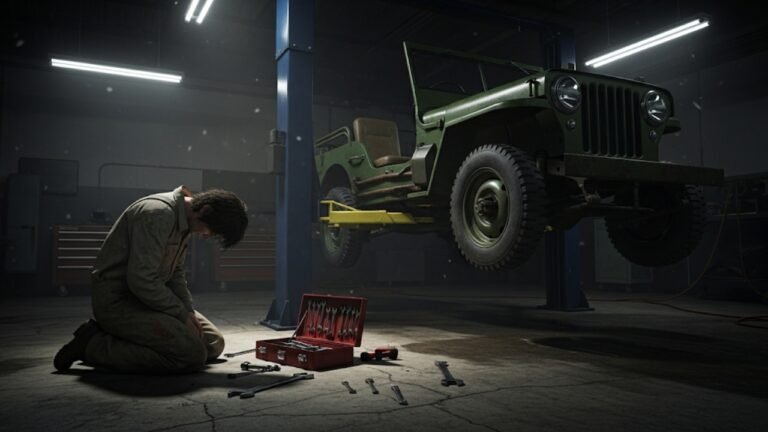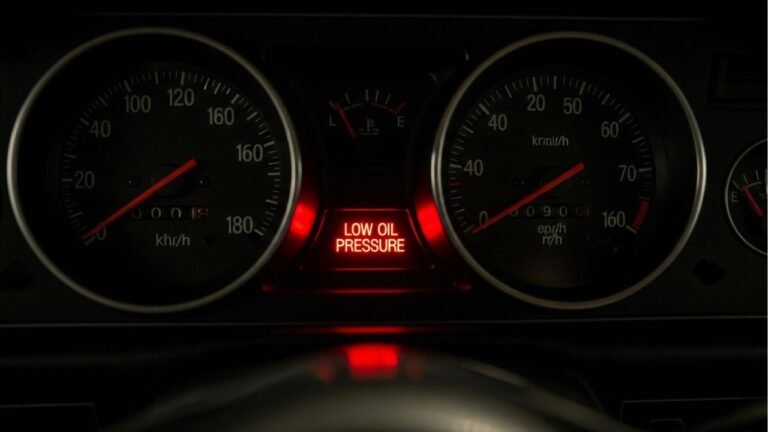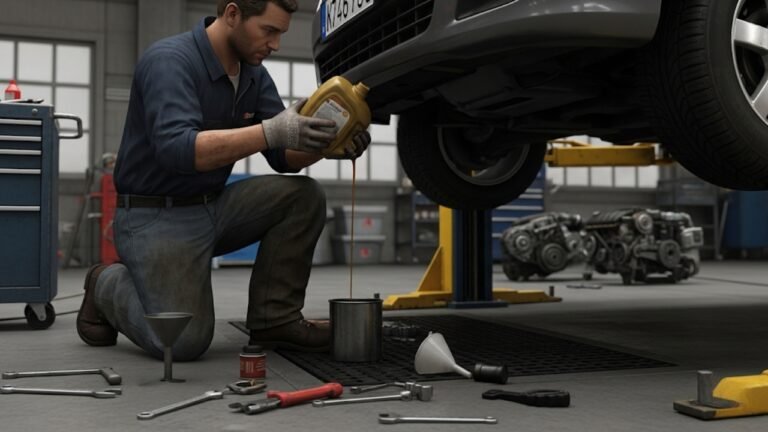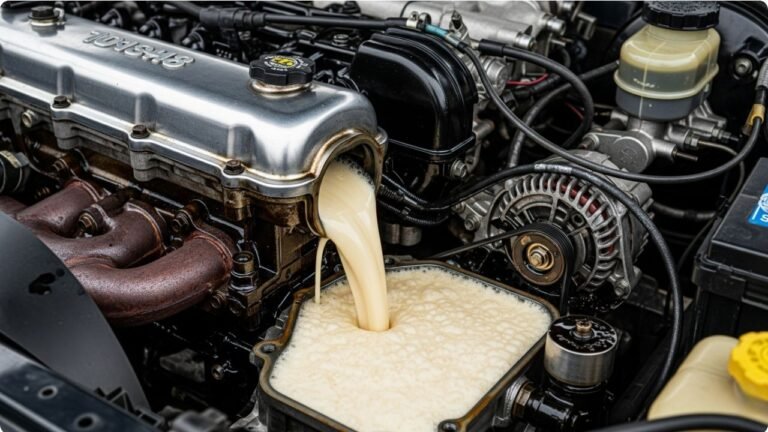Why Your Car Was Leaking Oil Then Stopped: What It Really Means
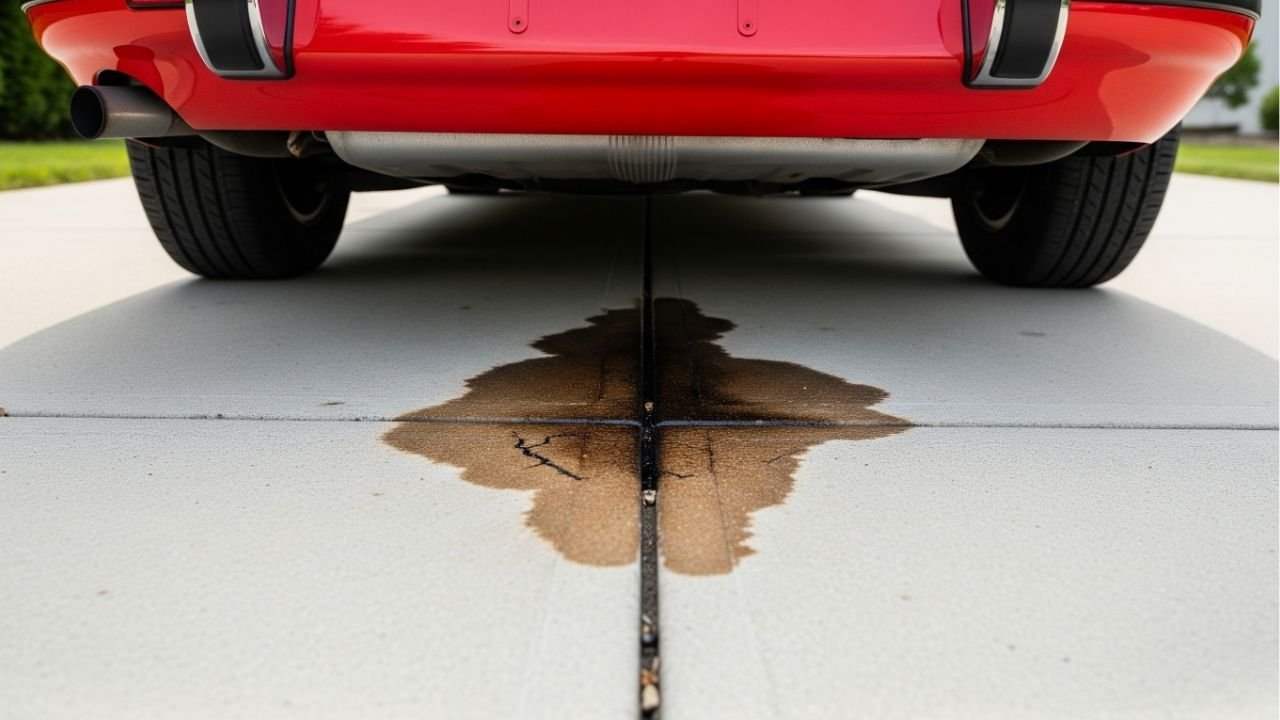
It’s one of those moments that throws you off: your car was leaking oil then stopped, and now you’re wondering, “Is that good news or is something worse hiding under the hood?”
Let me tell you a quick story. My cousin had a 2008 Honda Civic. One day, he parked it and noticed a dark, greasy spot on the driveway. Yep—oil leak. But strangely enough, after a few days, the leaking stopped. Naturally, he thought the problem fixed itself.
But here’s the thing: cars don’t heal themselves. If your car starts leaking oil, then mysteriously stops, there’s usually more to the story. The key is not to ignore it but to understand what’s really going on under the surface.
In this article, we’ll break it all down. We’ll explore the possible reasons, what it means when it stops leaking, and whether you should feel relieved—or worried. Let’s dive in.
The Emotional Rollercoaster of an Oil Leak
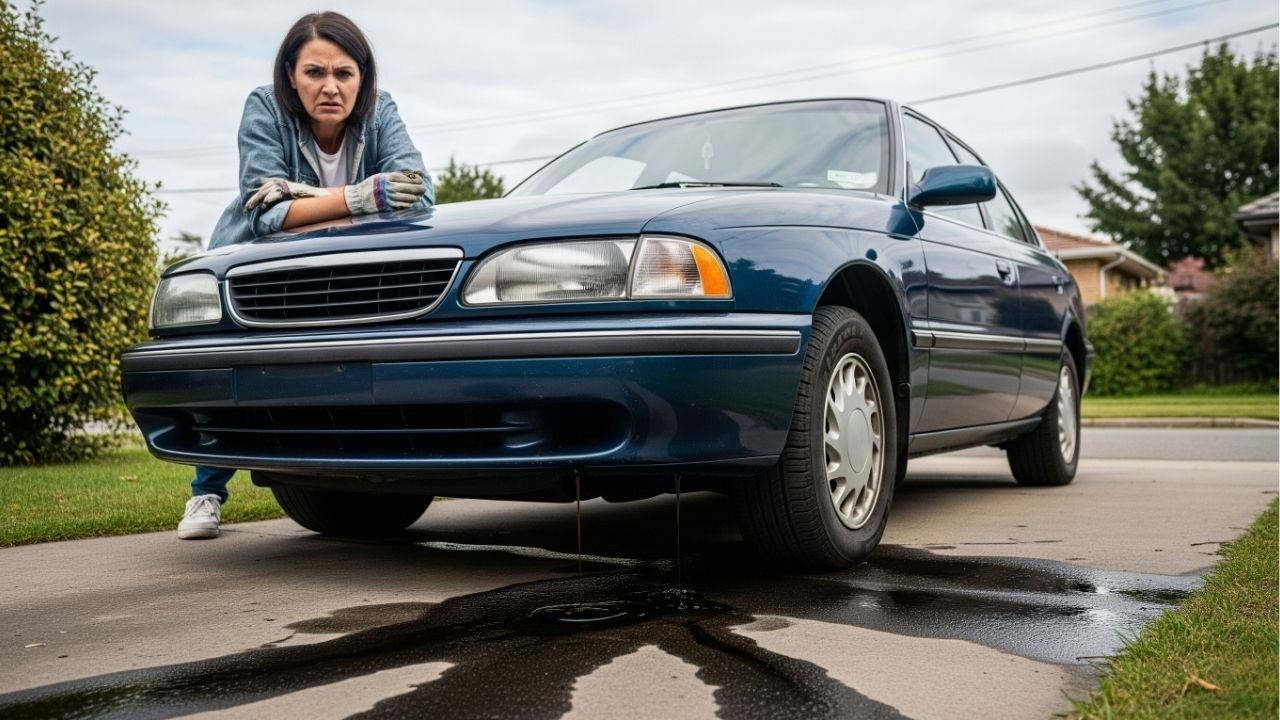
Cars are like people. They give you signs. Sometimes subtle. Sometimes obvious. If your car was leaking oil and then it stopped, don’t just assume it fixed itself. You wouldn’t ignore chest pain just because it went away after a few days, right?
Here’s why this topic matters:
-
An oil leak could lead to engine failure.
-
Even temporary leaks can hide bigger issues.
-
Delaying a check-up could increase repair costs.
-
Some leaks stop only because the oil is gone.
What It Means When Your Car Was Leaking Oil Then Stopped
Let’s get straight to the heart of it. If your car was leaking oil then stopped, there are a few possible explanations—some harmless, others more serious.
1. The Leak Was Intermittent
Some oil leaks don’t happen all the time. Maybe you parked on a hill one day, and gravity made a minor seal issue show itself. Or the engine was extra hot, and a gasket shrank slightly. When conditions return to normal, it might stop leaking—for now.
2. There’s No More Oil Left to Leak
This one’s dangerous. If the leak stopped because your oil level is dangerously low, the problem is now worse, not better. The oil is gone, and that means your engine isn’t protected. Running your car in this state can cause severe engine damage.
3. The Leak Area Got Clogged
Sometimes, dirt, debris, or sludge can temporarily plug the source of a leak. Think of it like sticking gum in a hole in a tire. It may hold for a bit, but it’s no real fix.
4. The Oil Leak Was Seasonal or Heat-Dependent
Gaskets expand and contract. In colder months or during cooler drives, a worn-out gasket may not leak. In hot summer traffic, it might gush. So if you notice the leak only happens under certain conditions, that’s a clue.
Common Causes of Oil Leaks That Stop Unexpectedly
If your car was leaking oil then stopped, it’s crucial to understand the root causes. Here are the most common culprits:
| Cause | How It Works | Danger Level |
|---|---|---|
| Worn Valve Cover Gasket | Oil seeps through when the engine heats up | Medium |
| Cracked Oil Pan | Small cracks leak only when pressure builds | High |
| Old Oil Filter | A loose or degraded filter can leak, then seal under pressure | Low-Medium |
| Faulty Drain Plug | Leak might seal itself with grime temporarily | High |
| PCV Valve Malfunction | Causes pressure build-up, forcing oil through seals | Medium |
What to Check First If the Leak Has Stopped
Just because the leak stopped doesn’t mean the danger’s gone. Here’s a quick checklist to follow:
-
✅ Check the oil level. If it’s low, the leak may have drained it.
-
✅ Look under your car after every drive for a few days.
-
✅ Check for oil splatter on the engine block or near the pan.
-
✅ Inspect the driveway or garage floor for stains.
-
✅ Smell burning oil while driving? It may be leaking onto hot parts.
Ignoring these signs could lead to a seized engine, which is a death sentence for your vehicle’s heart.
Real Stories: When a Leak Stopped… Then Things Got Worse
Let’s go back to my cousin’s Civic. He didn’t do anything after the leak stopped. Two weeks later, his car stalled on the highway. Turns out, the leak had emptied half his oil, and the engine was running dry. It overheated, warped the head, and cost him $1,700 in repairs.
Another friend had a Ford Explorer. He noticed a small oil puddle, then nothing. Weeks later, a strange knocking sound started. Guess what? Oil sludge had formed around the leak, sealing it temporarily, but internally, damage had already begun.
Moral of the story?
If your car was leaking oil then stopped, it’s not “fixed”—it’s hiding.
The Role of Oil Pressure in Disappearing Leaks
Here’s an insider tip most folks don’t know: engine oil pressure changes with RPM. When idling, pressure is low. At high speeds, pressure increases. Some leaks only appear under certain pressure.
That means:
-
At low speeds or parked? No leak.
-
At high speeds or under stress? Oil sprays out.
This can make it hard to track, especially if you’re only checking the ground for spots. Sometimes the oil burns off the engine block, and there’s no puddle at all.
Could You Be Mistaking It for Another Fluid?
Let’s clear one thing up: not all dark spots are oil.
Engine oil is usually brown or black. But other fluids can look similar:
-
Transmission fluid – red or dark brown
-
Power steering fluid – amber to reddish
-
Brake fluid – clear to brownish, slightly oily
Here’s a quick test:
-
Dip a white napkin in the puddle.
-
Rub it between your fingers.
-
Does it smell burnt or like gasoline? Probably oil.
-
Slippery and reddish? Might be transmission fluid.
If your car was leaking oil then stopped, double-check it was actually oil before going too deep.
Bullet Points: What to Remember If You Notice and Then Lose a Leak
-
Never assume a stopped leak = fixed.
-
Low oil levels can stop the leak—but destroy your engine.
-
Leaks can be heat-sensitive or pressure-based.
-
Check your oil level and dipstick regularly.
-
Look for burning smells or engine smoke—especially after driving.
What You Should Do If Your Car Was Leaking Oil Then Stopped
Now that we’ve broken down why your car might stop leaking oil, it’s time to talk action steps. What should you do next?
First, don’t ignore it. Just because the puddle vanished doesn’t mean the problem did too. Here’s a simple plan you can follow—even if you’re not a mechanic.
Step-by-Step What to Do:
-
Check the oil level
Use your dipstick first thing in the morning. If it’s below the minimum mark, you may have a hidden or slow leak. -
Clean the engine area
Wipe away old oil from around the valve cover, oil pan, and seals. That way, you can see if fresh leaks start. -
Lay down cardboard or paper overnight
This helps you confirm if oil is still leaking when parked. -
Drive short distances
Don’t go on a long trip yet. Watch for smoke, smells, or drops after driving. -
Visit a mechanic
Tell them the full story: “My car was leaking oil then stopped.” This info helps them diagnose more accurately.
Can You Still Drive It?
Here’s the million-dollar question: “Is it safe to keep driving?”
It depends. If the oil level is full, and there’s no active leak, you might be safe temporarily. But driving for weeks like that is risky. Some issues won’t show up until you’re stuck on the highway with no help around.
Here’s a rule of thumb:
If the leak was more than a few drops, get it checked. The risk is too high.
How to Prevent Future Oil Leaks
Prevention is cheaper than repair—always. If your car was leaking oil then stopped, now’s the perfect time to get serious about maintenance. These habits can save you money and engine stress:
✅ Change Oil Regularly
Old oil gets dirty and acidic. It eats away at seals, causing leaks.
✅ Replace Gaskets as Needed
Valve cover and oil pan gaskets don’t last forever. Replace them if they get brittle or cracked.
✅ Tighten Your Drain Plug
At every oil change, make sure it’s not over-tightened or left loose. A simple mistake here can cause a leak later.
✅ Use High-Quality Oil and Filters
Cheap filters often don’t seal properly, and bargain oil breaks down faster.
✅ Watch for Oil Pressure Warnings
If your oil light comes on, stop the car. It may not be leaking outside—but something’s wrong.
Metaphor Moment: Cars Are Like People
Imagine this: a small nosebleed that stops on its own. You might feel fine afterward, but if it keeps happening or comes with a headache—you’d see a doctor, right?
Your car is the same. A minor leak that stops might seem like nothing. But deep down, something might still be broken, worn, or about to give up. Your engine needs care, not denial.
Frequently Asked Questions (FAQs)
1. Why did my car stop leaking oil without being repaired?
It could be due to temporary changes in temperature, pressure, or oil levels. In some cases, dirt may clog the leaking point. But that’s not a fix—it’s a warning.
2. Is it safe to drive after an oil leak stops?
Not without checking the oil level. If the leak stopped because there’s no more oil, you could ruin your engine. Always inspect before driving again.
3. How can I tell where the oil leak came from?
Clean the engine area and inspect it after a short drive. Use UV dye oil additives or consult a mechanic who can pressure test your system.
4. Can an oil leak stop on its own permanently?
Rarely. Oil leaks don’t heal. Even if the leak seems to go away, the cause (cracked gasket, degraded seal) still exists and could return worse.
5. Should I add oil if my car was leaking but stopped?
Yes, check and top it off if needed. A low oil level is dangerous—even if the leak has stopped.
6. Can engine heat fix an oil leak temporarily?
Sometimes heat causes seals to expand, slowing or stopping leaks. But this is only temporary and not reliable as a solution.
7. Will synthetic oil help stop leaks?
Not really. In some cases, synthetic oils may leak more if seals are old or damaged. Use manufacturer-recommended oil.
8. How much does it cost to fix an oil leak?
It varies. Minor seal replacements may cost $50–$150. Serious leaks (like oil pan or main seal) could run $500–$1,500 depending on the car model and labor.
Final Thoughts: Listen to Your Car’s Whispers
If your car was leaking oil then stopped, think of it as your car whispering to you. It’s saying, “Something isn’t right—please check on me.”
You don’t have to panic, but you also shouldn’t ignore it. Small leaks, if left unchecked, lead to big breakdowns. And trust me—no one likes being stranded because of a fixable oil leak.
Treat your car like a partner. Pay attention when it gives you signs. In return, it’ll run smooth, last longer, and won’t leave you sweating on the side of the road.

